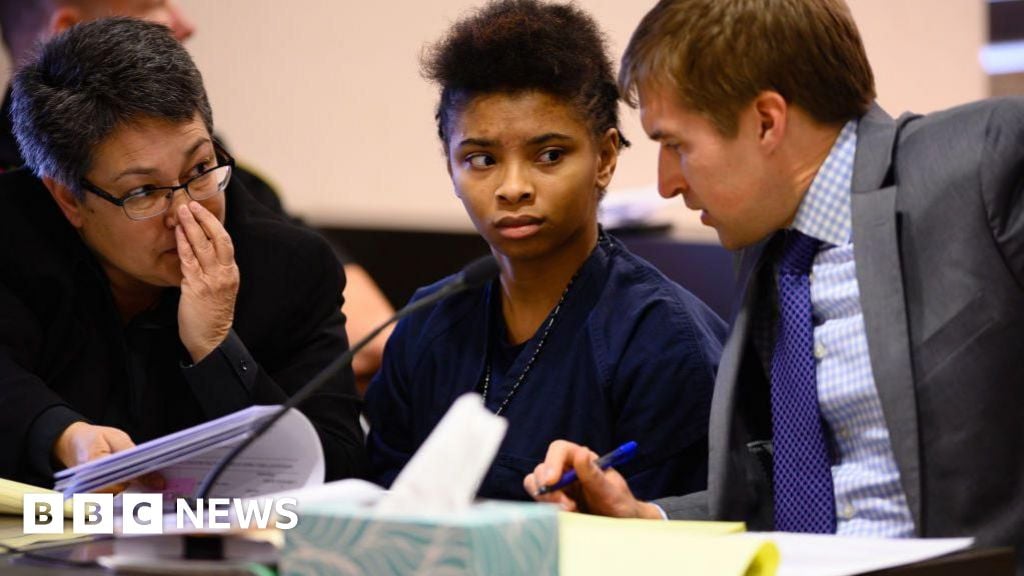A Milwaukee woman has been jailed for 11 years for killing the man that prosecutors said had sex trafficked her as a teenager.
The sentence, issued on Monday, ends a six-year legal battle for Chrystul Kizer, now 24, who had argued she should be immune from prosecution.
Kizer was charged with reckless homicide for shooting Randall Volar, 34, in 2018 when she was 17. She accepted a plea deal earlier this year to avoid a life sentence.
Volar had been filming his sexual abuse of Kizer for more than a year before he was killed.
Kizer said she met Volar when she was 16, and that the man sexually assaulted her while giving her cash and gifts. She said he also made money by selling her to other men for sex.


